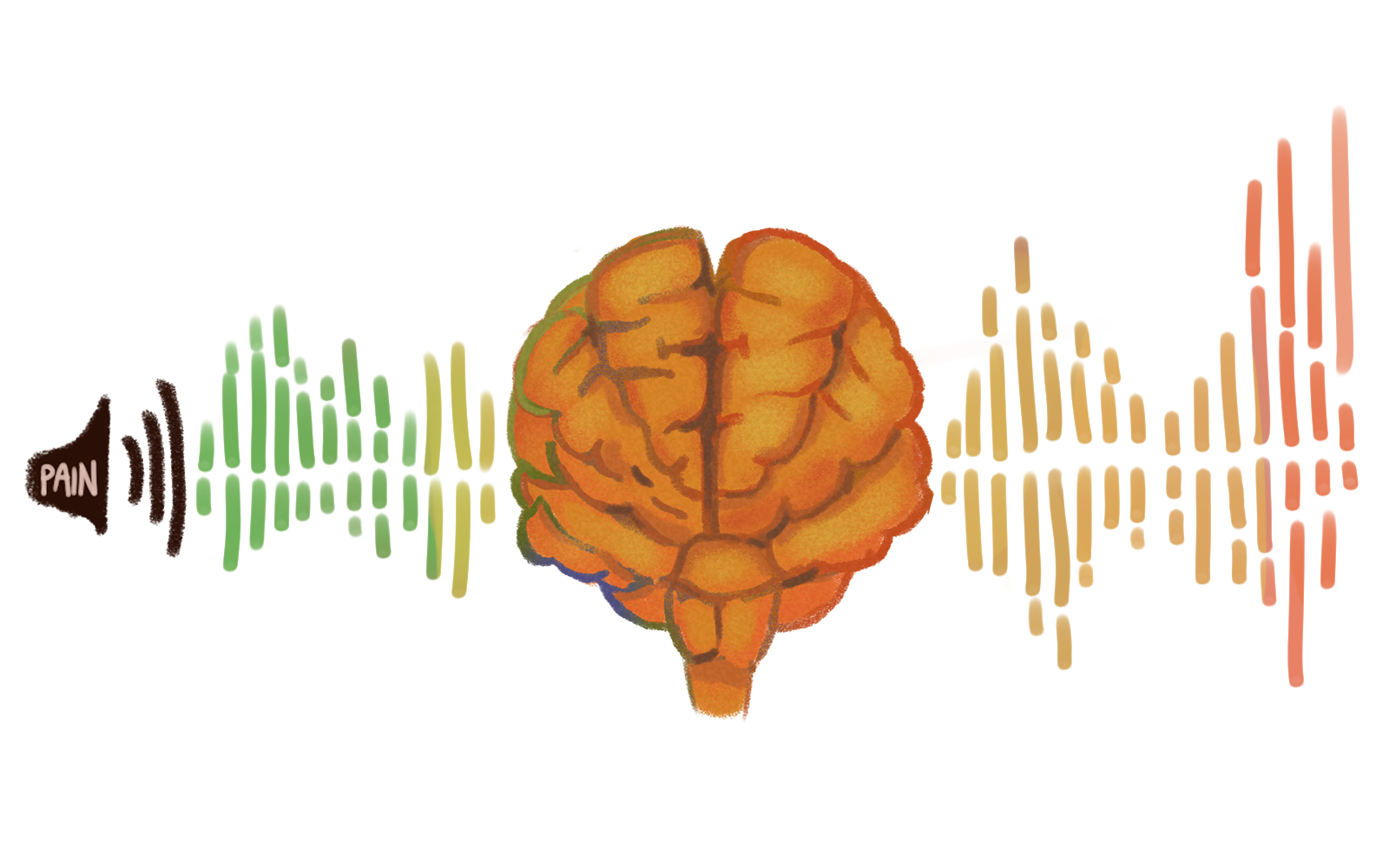Introduction
Most people are familiar with the concept of eating better to feel better. You are what you eat after all. This takes on new meaning when considering the integral connection of gut health and brain health. What you eat affects your gut health, which affects your brain function. Nutrition plays an underappreciated role in how the brain processes information and rises to prominence in neurological diseases related to sensory processing. Currently, researchers are testing nutritional therapy in clinical trials as a potential treatment for fibromyalgia (FM), a neuropathic disorder where there is dysfunction in the nervous system caused by neurochemical imbalances. A disease of unknown origin, FM is primarily characterized by chronic widespread musculoskeletal pain, which is long term pain in bones, muscles, and connected structures. Individuals with FM also experience a wide array of other symptoms including headaches and fatigue [1]. Due to the disease’s broad symptom profile, each patient’s experience is different, making it difficult to find a singular effective treatment. Without a cure-all, lifestyle changes in areas like nutrition may be the next step in countering symptoms for the 2-5% of Americans suffering from fibromyalgia [2].
The Pathophysiology of FM
Fibromyalgia is a disorder of pain processing in the Central Nervous System (CNS), which encompasses the brain and spinal cord. Neurochemical imbalances within the CNS result in heightened responses to both painful and non-painful stimuli. Think of it like a malfunctioning volume control setting set too high, making quiet noises loud and loud noises painful. Pain machinery in FM patients amplifies sensory stimuli in the same way, generating intensities of pain that do not correspond well with sensory experience. Research continues to study the underlying mechanisms involved, but a primary clinical concern is increasing the quality of life in patients by reducing symptoms [3]. Current medications targeting pain and fatigue allow some relief; however, a long-term solution without medical side effects is desired, as FM is a lifelong condition.

How FM is impacted by the Gut-Brain Connection
As research for other potential treatments continues, nutritional therapy studies on dietary adjustments have shown promise in combating FM. For instance, in diets high in fats and carbohydrates, the human body responds in the same way as encountering an injury and infection: with an immune response. These diets are associated with high levels of inflammatory cytokines, a crucial signaling molecule key in the immune system. Cytokines signal the immune system, attracting white blood cells and resulting in temporary gut inflammation [5]. Over time, nutritionally imbalanced diets rich in saturated fats and refined sugars result in chronic inflammatory stress [6]. Diet-stimulated cytokines are released by the gut into the blood, spreading throughout the body and into the nervous system.
Some inflammatory cytokines have been found at elevated levels in patients with FM. Normally, cytokines act as messengers to promote inflammation and the flow of white blood cells to fight invading bacteria and pathogens. Issues arise, however, when cytokines are overproduced in events known as cytokine storms [4]. These events are similar to a fire alarm system beeping when it senses smoke from cooking on a stove. While important and useful, if a fire alarm is constantly blaring regardless of actual danger, it is disruptive and difficult to live life.
Cytokine storms increase sensitivity in the nervous system. In the peripheral nervous system, cytokines activate and sensitize nerve endings resulting in stronger and more frequent responses to stimuli. Cytokines can also enter the central nervous system by crossing the Blood Brain Barrier, which is the CNS’s filtration system [7]. Once cytokines enter the CNS, they amplify production of cytokines even more in a positive feedback loop. Elevated levels of bloodborne interleukin, a type of cytokine, in patients with FM lead researchers to believe that inflammation of the CNS contributes significantly to the disease’s pathophysiology [4].
Constant, high inflammation influences the brain in a variety of ways. It impacts the brain's stress response system by enhancing activity in three brain regions known as the hypothalamus, pituitary gland, and adrenal gland [8]. Interleukin also blocks the production and release of dopamine, a neurotransmitter believed to be crucial in CNS regulation of chronic pain [9]. Still other inflammatory cytokines result in increased release of a common excitatory neurotransmitter, glutamate, in key pain-processing areas of the brain, such as the insula [8][9]. Combined, these mechanisms result in an amplified response to stimuli, leading to symptoms of chronic pain, fatigue, and depression [2].

Why Nutritional Therapy Should Work
The goal of nutritional approaches to FM, then, is to decrease inflammatory cytokine release. If certain diets can proactively combat inflammatory cytokine levels, this could help quiet the amplified signals in the brain and reduce FM symptoms. This is done through diets that regulate consumption of certain carbohydrates and fats. If viable, dietary intervention could complement other FM treatments to improve the quality of life in patients. Current research in a metabolic approach to fibromyalgia focuses on a decrease in consumption of inflammatory foods. Some studies have also increased consumption of anti-inflammatory foods, proactively combating cytokine levels.
The University of Lisbon highlighted the role of diet in cytokine production with an experiment that focused on a class of carbohydrates called FODMAPs. Over five months, participants followed individualized low FODMAP diets with self-reporting and monthly assessments. After eating this low carbohydrate diet for many months, the participants had reduced pain scores as well as an overall decrease in FM symptoms. There was also a strong correlation between adherence to the diet and individual satisfaction with the results [10]. In a similar study in Norway, researchers recorded decreased levels of inflammatory cytokines after a 3-week low FODMAP diet [11]. These two studies revealed a strong correlation between a low carbohydrate diet and controlled remission of FM symptoms via a decrease in cytokine release. A third study found that low FODMAP diets actually aid in rebalancing cytokine production [12]. Together, these findings support the possibility of reducing diet-related cytokine storms and even actively combating excess cytokine production.
In a case study, researchers in the Neurological Department Niguarda Hospital and Department of Biomedical Sciences University of Padova proposed a strict exclusion diet. Although the study was designed to facilitate Tryptophan absorption, the diet itself aligned with suggested anti-inflammatory diets in other studies testing diet related cytokine release. Specifically, they discovered that limiting foods with high fructose content resulted in controlled remission of FM symptoms [13].
An alternative way to reduce harmful carbohydrate and fat consumption is to simply shrink the whole diet. In an 83-participant study, researchers explored this by testing different levels of energy in diets. At the end of a 6-month energy-restricted diet of 1,200 kcal/day participants experienced a significant reduction in FM symptoms [2]. For comparison, the average American diet usually falls within the range of 1,800-2,500 kcal/day [14]. Over this period, participants in both the variable and control group followed the same nutrient requirements with a caloric limitation on the variable group. This allowed them to specifically test caloric intake as a factor for cytokine release. At the end of the 6 months, the researchers recorded significantly lower levels of interleukin in the variable group. Patients reported significant decreases in physical impairment, pain, fatigue and other symptoms relative to the control group. The control group remained constant throughout the 6 months, with no significant change in symptoms. By simply reducing caloric intake, participants lowered overall consumption of refined sugars and fats. This led to a decrease in cytokine release. As a result, the gut released less interleukin and they experienced noticeable remission in symptoms [2].
These results are a positive step towards proactive lifestyle treatments improving the quality of life in patients with fibromyalgia. However, while these studies show support for nutritional therapy as a treatment for FM, it is important to note the limited progress of current research. Published studies in this topic are both rare and of poor statistical quality. Due to the nature of dietary approaches, participants know whether they are in the control group or the experimental group testing treatment making it impossible to have a double blind study. This results in low control over confounding variables such as researcher and participant bias. Other studies have small sample sizes, such as case studies that follow a single individual, limiting the statistical significance of results. Well-designed clinical trials are needed to properly evaluate the effects of nutritional intervention on the progression and symptoms of FM. Until then, the efficacy of nutritional therapy as a treatment for FM remains inconclusive [15].
Next steps for FM Treatments
Fibromyalgia is a challenging and often debilitating disease representing a serious physical burden [13]. The complexity of the pain pathways and neurochemical imbalances involved in FM vary from person to person. This means that no single class of drugs will work for all individuals with fibromyalgia. Additionally, many pain relief medications are relatively ineffective at treating FM patients because they don’t treat the underlying neural dysfunction in pain pathways. Current treatments consist of both pharmaceutical and non-medicinal approaches. The effectiveness varies among patients, resulting in a need for incredibly individualized care [3].
Dietary intervention shows promise as a viable way to approach fibromyalgia treatment. Pain and functionality appears to improve in FM patients when adhering to a hypocaloric or low carbohydrate diet [2][10][11][12][13][14]. Compared to current methods, nutritional therapy is a cheaper alternative to pharmaceutical approaches without the potential side effects.
In order to develop effective treatments, future research needs to improve in statistical quality before conclusive assessments can be made. There is a lack of effective treatments in the status quo for the estimated 10 million individuals living with FM in the United States. Further research into holistic therapies, such as nutrition, is needed to address the dearth in treatment options for those suffering from FM.
References
- Jahan, F., Nanji, K., Qidwai, W., & Qasim, R. (2012). Fibromyalgia syndrome: an overview of pathophysiology, diagnosis and management. Oman medical journal, 27(3), 192–195. https://doi.org/10.5001/omj.2012.44
- Senna, M. K., Sallam, R. A., Ashour, H. S., & Elarman, M. (2012). Effect of weight reduction on the quality of life in obese patients with fibromyalgia syndrome: a randomized controlled trial. Clinical rheumatology, 31(11), 1591–1597. https://doi.org/10.1007/s10067-012-2053-x
- Clauw, D. J., Arnold, L. M., McCarberg, B. H., & FibroCollaborative (2011). The science of fibromyalgia. Mayo Clinic proceedings, 86(9), 907–911. https://doi.org/10.4065/mcp.2011.0206
- Rodriguez-Pintó, I., Agmon-Levin, N., Howard, A., & Shoenfeld, Y. (2014). Fibromyalgia and cytokines. Immunology letters, 161(2), 200–203. https://doi.org/10.1016/j.imlet.2014.01.009
- Tan, B. L., & Norhaizan, M. E. (2019). Effect of High-Fat Diets on Oxidative Stress, Cellular Inflammatory Response and Cognitive Function. Nutrients, 11(11), 2579. https://doi.org/10.3390/nu11112579
- Serafini, M., & Peluso, I. (2016). Functional Foods for Health: The Interrelated Antioxidant and Anti-Inflammatory Role of Fruits, Vegetables, Herbs, Spices and Cocoa in Humans. Current pharmaceutical design, 22(44), 6701–6715. https://doi.org/10.2174/1381612823666161123094235
- Schirmer, M., Smeekens, S. P., Vlamakis, H., Jaeger, M., Oosting, M., Franzosa, E. A., Ter Horst, R., Jansen, T., Jacobs, L., Bonder, M. J., Kurilshikov, A., Fu, J., Joosten, L., Zhernakova, A., Huttenhower, C., Wijmenga, C., Netea, M. G., & Xavier, R. J. (2016). Linking the Human Gut Microbiome to Inflammatory Cytokine Production Capacity. Cell, 167(4), 1125–1136.e8. https://doi.org/10.1016/j.cell.2016.10.020
- Sluka, K. A., & Clauw, D. J. (2016). Neurobiology of fibromyalgia and chronic widespread pain. Neuroscience, 338, 114–129. https://doi.org/10.1016/j.neuroscience.2016.06.006
- Miller, A. H., Haroon, E., Raison, C. L., & Felger, J. C. (2013). Cytokine targets in the brain: impact on neurotransmitters and neurocircuits. Depression and anxiety, 30(4), 297–306. https://doi.org/10.1002/da.22084
- Marum, A. P., Moreira, C., Saraiva, F., Tomas-Carus, P., & Sousa-Guerreiro, C. (2016). A low fermentable oligo-di-mono saccharides and polyols (FODMAP) diet reduced pain and improved daily life in fibromyalgia patients. Scandinavian journal of pain, 13, 166–172. https://doi.org/10.1016/j.sjpain.2016.07.004
- Hustoft, T. N., Hausken, T., Ystad, S. O., Valeur, J., Brokstad, K., Hatlebakk, J. G., & Lied, G. A. (2017). Effects of varying dietary content of fermentable short-chain carbohydrates on symptoms, fecal microenvironment, and cytokine profiles in patients with irritable bowel syndrome. Neurogastroenterology and motility : the official journal of the European Gastrointestinal Motility Society, 29(4), 10.1111/nmo.12969. https://doi.org/10.1111/nmo.12969
- Zhou, S. Y., Gillilland, M., 3rd, Wu, X., Leelasinjaroen, P., Zhang, G., Zhou, H., Ye, B., Lu, Y., & Owyang, C. (2018). FODMAP diet modulates visceral nociception by lipopolysaccharide-mediated intestinal inflammation and barrier dysfunction. The Journal of clinical investigation, 128(1), 267–280. https://doi.org/10.1172/JCI92390
- Lattanzio, S. M., & Imbesi, F. (2018). Fibromyalgia Syndrome: A Case Report on Controlled Remission of Symptoms by a Dietary Strategy. Frontiers in medicine, 5, 94. https://doi.org/10.3389/fmed.2018.00094
- CDC. (2015, November 06). Products - Data Briefs - Number 49 - November 2010. Retrieved November 18, 2020, from https://www.cdc.gov/nchs/products/databriefs/db49.htm
- Silva, A. R., Bernardo, A., Costa, J., Cardoso, A., Santos, P., de Mesquita, M. F., Vaz Patto, J., Moreira, P., Silva, M. L., & Padrão, P. (2019). Dietary interventions in fibromyalgia: a systematic review. Annals of medicine, 51(sup1), 2–14. https://doi.org/10.1080/07853890.2018.1564360
